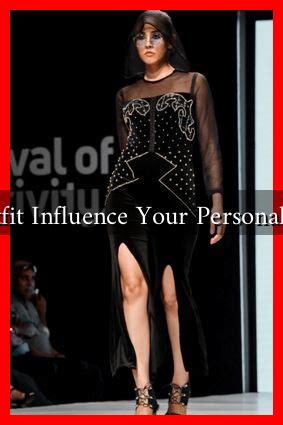-
Table of Contents
Can Your Outfit Influence Your Personality Perception?
In a world where first impressions are often formed in mere seconds, the clothes we wear can significantly impact how others perceive our personality. The concept of “enclothed cognition” suggests that our attire can influence not only how others see us but also how we see ourselves. This article delves into the intricate relationship between clothing and personality perception, supported by research, examples, and case studies.
The Psychology of Clothing
Clothing is more than just a means of protection against the elements; it serves as a powerful form of non-verbal communication. According to a study published in the journal *Social Psychological and Personality Science*, clothing can affect our mood, confidence, and even cognitive performance. The way we dress can signal our social status, professionalism, and even our emotional state.
How Outfits Shape Perceptions
When we meet someone for the first time, our brains quickly assess their clothing to form judgments about their personality. Here are some key ways outfits influence personality perception:
- Professionalism: Formal attire, such as suits and dresses, often conveys competence and authority. A study by the University of California found that individuals dressed in formal clothing were perceived as more capable and intelligent.
- Creativity: Unconventional or artistic clothing can signal creativity and open-mindedness. For instance, a person wearing vibrant colors and unique patterns may be seen as more innovative compared to someone in neutral tones.
- Confidence: Wearing clothes that fit well and reflect personal style can boost self-esteem, which in turn influences how others perceive us. A confident demeanor often leads to positive personality assessments.
Case Studies and Real-World Examples
Several case studies illustrate the impact of clothing on personality perception:
- The Power of Uniforms: Research conducted by the University of Kent showed that individuals in uniforms were perceived as more authoritative and trustworthy. This is why many professions, such as law enforcement and healthcare, utilize uniforms to establish credibility.
- Job Interviews: A survey by CareerBuilder revealed that 49% of employers believe that a candidate’s attire influences their hiring decision. Candidates dressed in business attire were often viewed as more serious and committed to the job.
- Social Media Influence: In the age of social media, influencers often curate their outfits to project specific personalities. A study by the University of Southern California found that followers often judge influencers based on their clothing choices, associating certain styles with traits like trustworthiness and relatability.
The Role of Cultural Context
It’s essential to recognize that clothing’s influence on personality perception can vary across cultures. What is considered professional attire in one culture may be viewed as casual in another. For example, in Western cultures, a suit may signify professionalism, while in some Asian cultures, traditional attire may carry the same weight. Understanding cultural nuances is crucial for accurate personality assessments based on clothing.
Practical Tips for Dressing to Influence Perception
If you’re looking to influence how others perceive your personality through your outfit, consider the following tips:
- Dress for the Occasion: Tailor your outfit to the context, whether it’s a job interview, a social gathering, or a formal event.
- Choose Colors Wisely: Colors evoke emotions; for instance, blue is often associated with trust, while red can signify passion and energy.
- Accessorize Thoughtfully: Accessories can enhance your outfit and convey additional personality traits. A statement watch or unique jewelry can showcase creativity.
Conclusion
In conclusion, your outfit undeniably influences how others perceive your personality. From professionalism to creativity, clothing serves as a powerful tool for non-verbal communication. By understanding the psychology behind clothing choices and their cultural implications, you can strategically dress to project the personality traits you wish to convey. Remember, while clothing can shape perceptions, authenticity remains key; wear what makes you feel confident and true to yourself.
For further reading on the psychology of clothing and its impact on perception, you can explore resources like Psychology Today.

